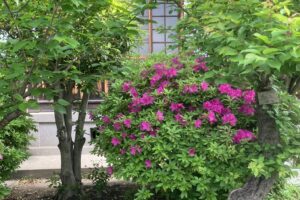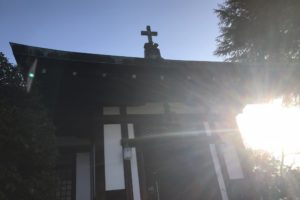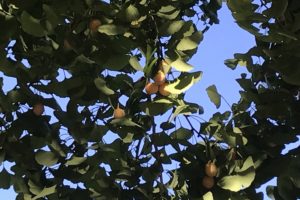Proper 6, June 16, 2024
Ezekiel 17:22-24, 2 Corinthians 5:6-10,11-13,14-17, Mark 4:26-34
Jeffrey Bowyer
In our readings today, what appears to connect our three readings is the commitment to faith in trying and difficult times
Ezekiel
In our first reading in Ezekiel, the background is the history of people of Judah at the time of the three deportations to Babylon: in 605, eight years later in 597, and again eleven years later in 586. All three deportations were carried out by Nebuchadnezzar, king of Babylon
After his deportation, It appears that Ezekiel received his prophetic calling in 593 and his first duty was to convince his fellow exiles that their expectation of an early return was in vain; as was their faith in the inviolability of the Temple. It had been decreed that the destruction of Jerusalem and the Temple and the dispersion of the people of Judah. A fact which came to pass seven years later. The fall of Jerusalem demonstrated the truth of Ezekiel’s prophetic mission; now Ezekiel had to drive home the all-important truth that the people were not suffering for the sins of their forefathers, but for their own sinfulness. So If a man truly repents, he will be saved.
.
2 Corinthians
In our second reading Saint Paul now continues from an earlier reading by teaching about our heavenly dwelling which is our ultimate destination and how we are to work to achieve it. So we need to be always courageous, although we know that while we are at home in the body we are away from the Lord, and in verse 7: For we live by faith, not by sight.
This earthly tent we occupy is not our home; our home is in heaven.
During the months between Paul’s letters, there were great changes in the church at Corinth. Paul’s first letter had a powerful effect on the church members. They chose to obey God; they stopped their bad behaviour.
Also during this time, Paul was suffering very severely. His enemies attacked him both in Ephesus* and Macedonia*. Paul thought that he would die; but that caused him to trust God even more. Paul discusses finding comfort in God during trials and suffering. He emphasizes that God’s grace is sufficient even in weakness.
So in 2 Corinthians 5, the chapter expresses the hope of Christians for a heavenly dwelling after death. The chapter compares the earthly body to a tent that is temporary and fragile, and the heavenly body to a house that is eternal and solid. The chapter also affirms that God has prepared this heavenly dwelling for Christians and has given them the Holy Spirit as a guarantee of their future inheritance.
Mark 4: 26-34
In gospel of Mark there are only a few parables, but the ones that are there really count. Of course, parables are comparisons meant to cast two things alongside one another to provide analogy, contrast, or reflection. Taken together, this collection of parables creates the context for experiencing Jesus’ continuing ministry as the inaugurator of the elusive yet inevitable reign or traditionally known as the “kingdom” of God. Jesus’ parables, whether they are brief aphorisms or short narratives, have a way of reordering conventional assumptions and values
So the seed is the word and the parable is to the holy spirit within all of us.
In an earlier service we read in Mark 4 about the seed falling into different qualities of soil and the outcome of the seeds reflecting back to how our holy spirit fares in our lifes. But in todays gospel reading: Mark 4:26, our parable covers the traditional agricultural society wherein farmers would sow seeds in their lands and then simply wait. When a crop was ready they would reap it , using a scythe. A whole process then had to follow: gathering together and collect each other’s crop into stacks, count them and then know what to expect from their harvest. We read
sleep and rest night and day, and through it all, the seed would sprout and grow, he knows not how, Of its own accord the land yields fruit, first the blade, then the ear, then the full grain in the ear.
So here is the seed growing on its own in good soil (Mark 4:26-29)
Mark introduces the two parables in Mark 4:26-32 with explicit mention of “the kingdom of God.” The parables illuminate aspects of God’s reign. In both stories, Jesus speaks about seeds (a common metaphor for formation and education in ancient contexts) to indicate that God’s new order will take root and eventually come to fruition.
No other Gospel contains this parable. Probably because it’s plot has all the drama of an ordinary elementary-school life sciences textbook and there are no surprises. Everything proceeds according to plan. Jesus simply speaks about seeds and what they are supposed to do. They grow and produce.
In other words, the reign of God will take root — whether in the world, in imperial society, or in someone’s heart. It will grow gradually and automatically. It will grow perhaps so subtly that you won’t even notice, until at last it produces its intended fruit.
The inevitability and mystery of the seed’s maturation into a plant that eventually is harvested (an allusion to judgment) provide a vital counterpoint to the more famous parable that dominates Mark 4, a parable mentioned before mentioned in an earlier service about sowing seeds in various soils. In that parable, so many seeds fail to bear fruit that one might question God’s commitment to seeing the reign of God blossom.
Likewise, as the disciples stumble throughout Mark, one might worry that the wrong people have been entrusted with access to divine knowledge (Mark 4:11, 33-34). But this simple parable offers a counterbalance and reassurance in the face of such concerns: it is the nature of God’s reign to grow and to manifest itself and that’s what it does. God’s reign, like a seed, must grow, even if untended and even if its gradual expansion is nearly impossible to detect.
So today’s readings inspire us to see the divine energy and insight present in unexpected places. In all things God works for good and though the seeds God’s realm often appear to be precarious and unimportant – a great harvest and great possibilities are on the horizon for those who see from a God’s eye view, the eyes of faith, and bring forth great things from small beginnings.
We are challenged to go beyond appearances and to see the divine presence in unlikely places. We are invited to see the movements of God’s grace – the power of God’s salvation – in our own lives and in the people of around us, seeing them and us from a divine rather than human point of view.













